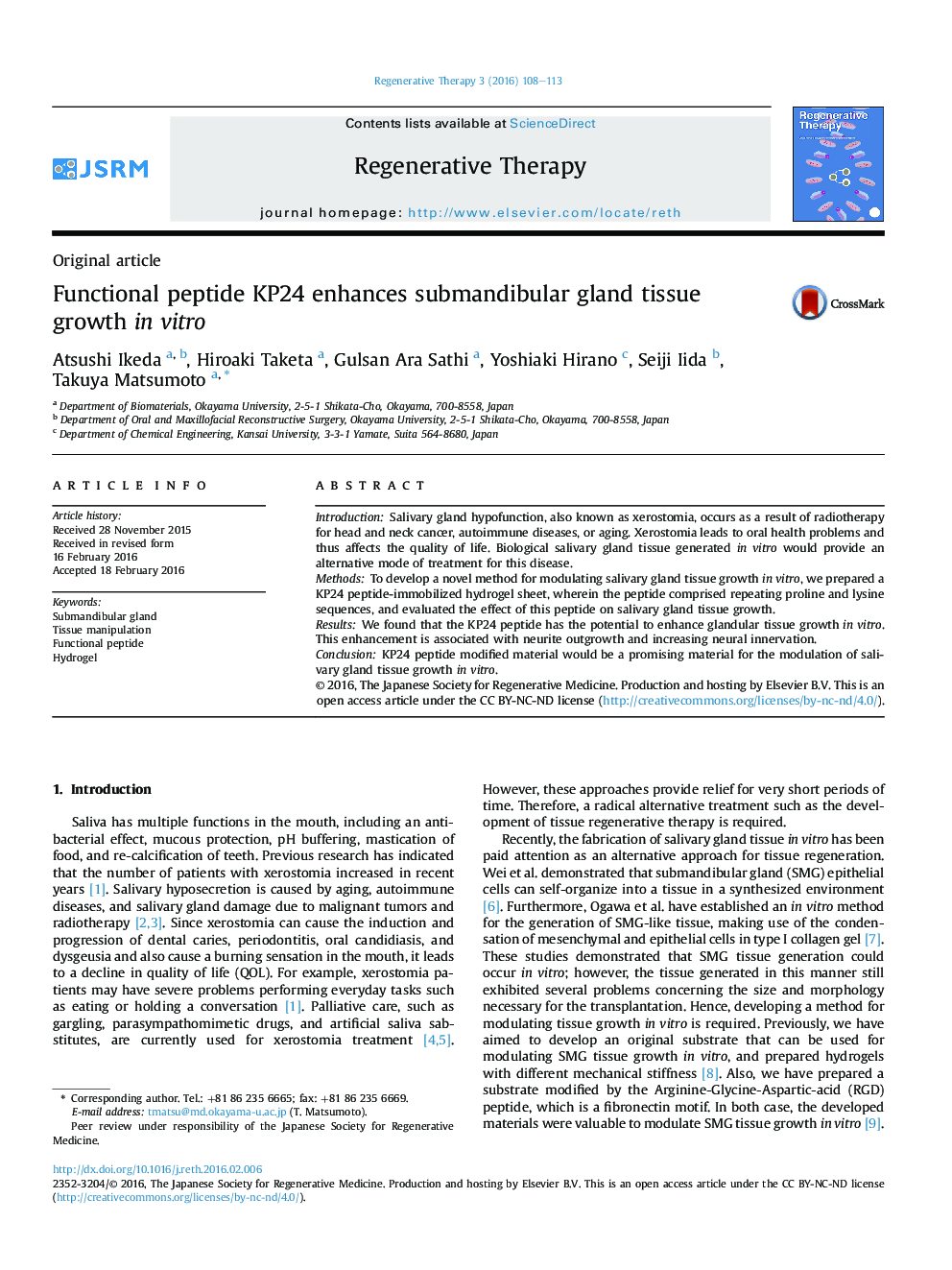| Article ID | Journal | Published Year | Pages | File Type |
|---|---|---|---|---|
| 2022310 | Regenerative Therapy | 2016 | 6 Pages |
•KP24 immobilized hydrogel enhanced the growth of submandibular gland tissue in vitro.•KP24 immobilized hydrogel is related to the neuronal innervasion and neurite outgrowth in growing submandibular gland tissue.
IntroductionSalivary gland hypofunction, also known as xerostomia, occurs as a result of radiotherapy for head and neck cancer, autoimmune diseases, or aging. Xerostomia leads to oral health problems and thus affects the quality of life. Biological salivary gland tissue generated in vitro would provide an alternative mode of treatment for this disease.MethodsTo develop a novel method for modulating salivary gland tissue growth in vitro, we prepared a KP24 peptide-immobilized hydrogel sheet, wherein the peptide comprised repeating proline and lysine sequences, and evaluated the effect of this peptide on salivary gland tissue growth.ResultsWe found that the KP24 peptide has the potential to enhance glandular tissue growth in vitro. This enhancement is associated with neurite outgrowth and increasing neural innervation.ConclusionKP24 peptide modified material would be a promising material for the modulation of salivary gland tissue growth in vitro.
